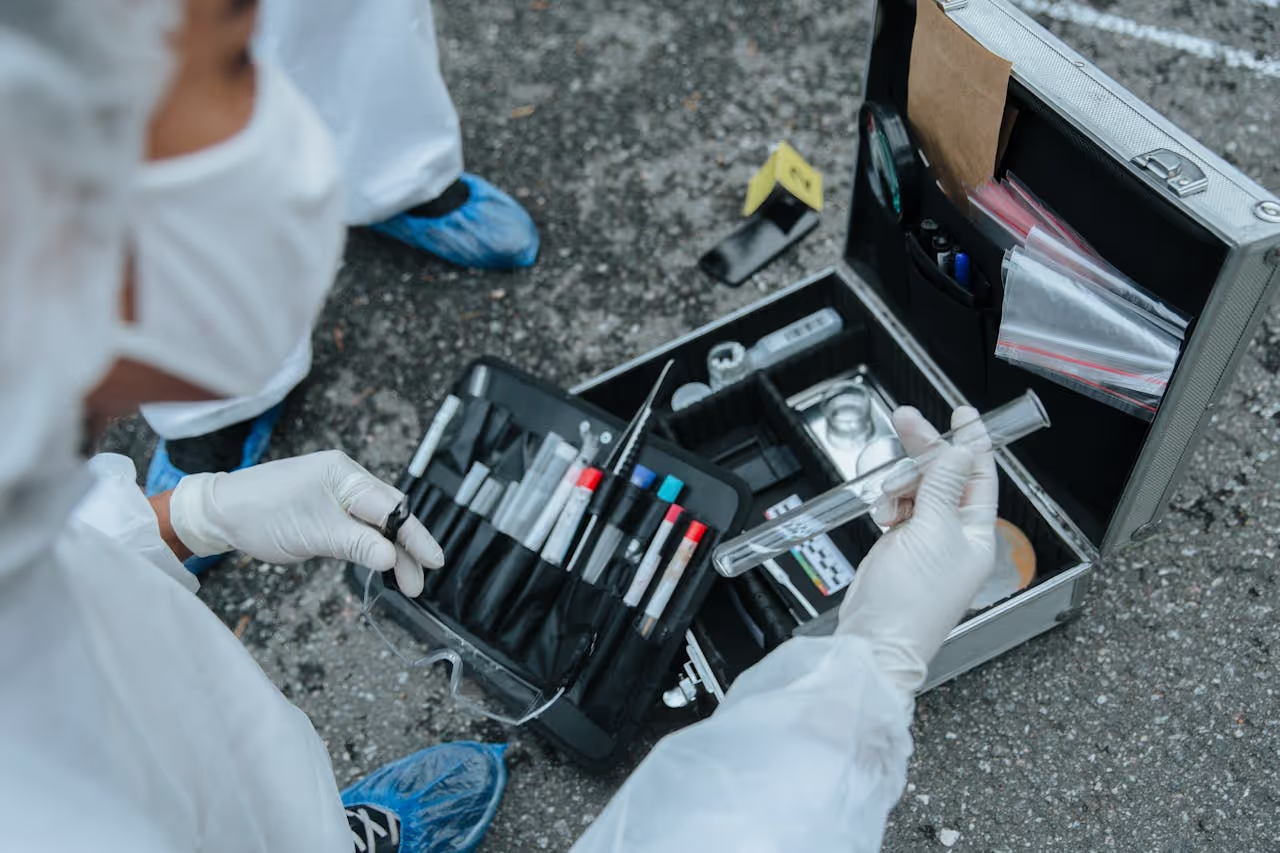Exploring the World of Crime Scene Investigation
Crime scene investigators, also known as CSIs, play a crucial role in the criminal justice system. These professionals use scientific techniques to uncover evidence that often solves real-life mysteries. As you learn more about CSIs, you may discover the job is more fascinating than the television shows depict. Let's dive into some interesting facts about crime scene investigators, their everyday work, and what it takes to become one.
What Does a Crime Scene Investigator Really Do?
CSIs are essential members of law enforcement teams, responsible for preserving, collecting, and analyzing evidence from crime scenes. They work in both the field and the lab, ensuring that every clue is carefully documented. Their work supports detectives, forensic scientists, and attorneys throughout criminal investigations and trials.
- Evidence Collection: CSIs gather fingerprints, hair, fibers, blood, weapons, and other trace evidence.
- Photography and Sketches: They photograph and diagram the scene to provide a clear and accurate record.
- Lab Analysis: Some CSIs process evidence like DNA, ballistics, and toxicology samples in high-tech labs.
- Testimony: They may appear in court to explain how evidence was collected and what it means.
Fun Facts About Crime Scene Investigators and Their Careers
- No Two Days Are Alike: Crime scene investigators solve a variety of cases, from burglaries and assaults to major homicides.
- Reality VS TV Shows: In real life, CSIs usually focus on specific duties and rarely carry guns or chase suspects.
- Shift Work: Crime happens at all hours, so most CSIs work shifts, weekends, and holidays.
- Continued Training: Keeping up with advances in forensic sciences is a must for every investigator.
- Attention to Detail: A small mistake can compromise critical evidence. Patience and focus are essential skills.
How Do You Become a Crime Scene Investigator?
Many people want to know how to enter this exciting field. Here’s what you should know about becoming a forensic crime scene investigator:
- Education: Most employers require at least a bachelor’s degree in criminal justice, forensic science, biology, or chemistry.
- On-the-Job Training: New CSIs complete extensive training in evidence collection and chain of custody procedures.
- Certifications: Earning certifications, like those from the International Association for Identification (IAI), can enhance career prospects.
- Background Check: Because you will handle sensitive evidence, a clean background and drug test are required.
The Tools and Technology Crime Scene Investigators Use
CSIs rely on technology and scientific tools to make sense of crime scenes. Here are some of the most common:
- Fingerprint Kits: Used to collect latent prints from surfaces.
- Alternate Light Sources: Help spot bodily fluids, fibers, and trace evidence.
- Evidence Bags & Containers: Specialized packaging keeps evidence uncontaminated.
- DNA Analysis Kits: Modern CSIs can collect and process DNA from tiny samples.
- Digital Cameras: Critical for documenting the scene in detail.
Day-to-Day Life: What’s It Like to Be a CSI?
Your work as a crime scene investigator will take you out in the field, into the lab, and sometimes to the courtroom. While it’s rarely as action-packed as TV dramas suggest, the job is rewarding, detail-focused, and always filled with new challenges.
- Working in a variety of environments, including homes, wooded areas, and vehicles.
- Carefully donning protective gear to avoid cross-contamination.
- Keeping detailed notes, logs, and records of all collected evidence.
- Collaborating with police officers, detectives, and forensic scientists.
- Sometimes facing difficult or emotionally charged situations.
Skills and Personality Traits for Success in Crime Scene Investigation
The best CSIs are more than just technically skilled—they have strong interpersonal abilities and a commitment to justice. If you are considering this career, cultivating the following traits is key:
- Critical Thinking for piecing together clues.
- Excellent Communication for writing reports and testifying in court.
- Calm Under Pressure to handle the demands and stress of crime scenes.
- Physical Stamina for long shifts and challenging environments.
- Empathy and Compassion for victims and their families.
Crime Scene Investigator Salary, Job Growth, and Outlook
The salary for crime scene investigators varies by location and experience. According to the U.S. Bureau of Labor Statistics, forensic science technicians earned a median pay of $61,930 per year in 2023. Job prospects are expected to grow as forensic science technology evolves and the demand for skilled investigators rises.
Unusual and Surprising CSI Facts You Didn’t Know
- CSI shows have increased interest in forensic careers, a trend known as the “CSI Effect.”
- Some specialized CSIs focus only on certain types of evidence, like digital forensics, footwear impressions, or entomology (studying bugs on bodies).
- Crime scene work can involve extreme weather, confined spaces, and dirty environments.
- Clues can be as small as a single hair or a trace of a rare chemical compound.
- Real-life CSI work requires more patience and paperwork than high-speed TV plots show.
Common Questions About Crime Scene Investigators
What degree do you need to become a crime scene investigator?
Most crime scene investigators have a bachelor’s degree in subjects such as forensic science, biology, chemistry, or criminal justice. Some employers may accept an associate’s degree or relevant police experience, but more education can provide a competitive edge.
Is a CSI the same as a forensic scientist?
No, crime scene investigators focus on collecting and documenting evidence at crime scenes, while forensic scientists usually work in laboratories analyzing the evidence collected by CSIs. Some professionals do both, but the duties are often separate.
Do crime scene investigators carry guns?
Most civilian CSIs are not armed and do not pursue suspects. However, some CSIs with police officer status may carry firearms, especially if their job includes law enforcement duties.
What skills are important for a crime scene investigator?
Key skills include attention to detail, organization, patience, communication, analytical thinking, and the ability to remain calm in stressful situations.
Are there different types of crime scene investigators?
Yes, CSIs may specialize in areas such as digital forensics, bloodstain pattern analysis, latent fingerprints, arson investigation, or forensic anthropology.
How long does it take to become a crime scene investigator?
It generally takes about four years to earn a bachelor's degree. You may also need to complete several months of field or department training, depending on the employer.










.svg)



